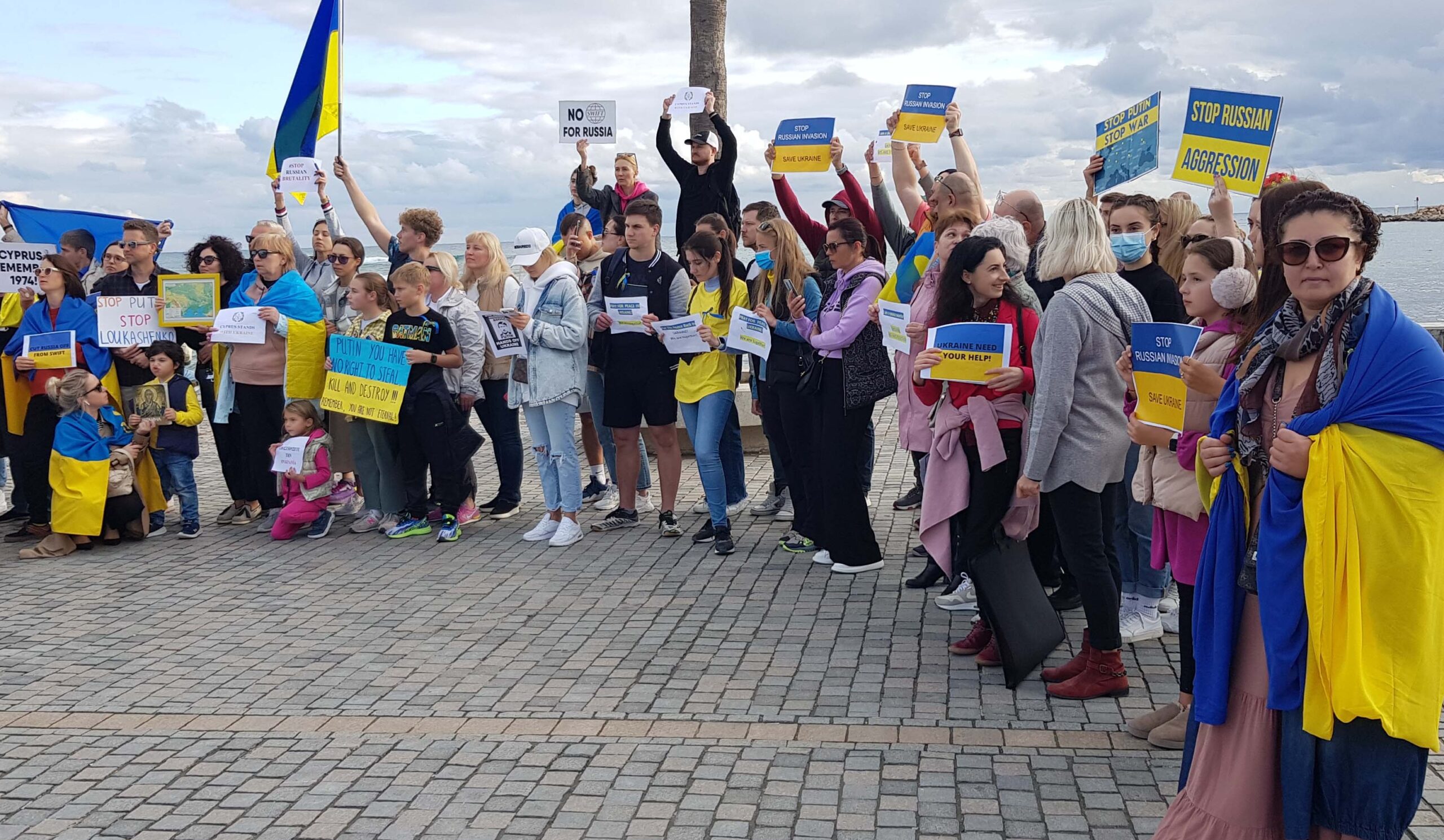In the aftermath of Russia’s invasion of Ukraine and sanctions could inflict wounds on the Cypriot economy, including trade, higher fuel prices and the key tourism sector where 22% are Russia and Ukraine visitors.
This summer, hundreds of thousands of tourists were expected from the two countries, with stakeholders arguing that trade relations with Russia and Ukraine are crucial.
In comments to the Financial Mirror, the general secretary of the Cyprus Chamber of Commerce and Industry, Marios Tsiakkis, said the trade volume between Cyprus and Russia generated €44 mln in 2020, half of which were imports of fuels and by-products.
Some €36 mln of goods were imported, while Cyprus exported €8 mln worth of products.
Tsiakkis said the volume of trade with Ukraine was not to be sniffed at; in 2020, it stood at €34 mln.
Some €22 mln were imports, and the rest were exports.
“Although volumes have significantly decreased in the past two years due to COVID19 restrictions, and thus the dependency on these markets has lessened, some sectors still have a lot vested in the trade relations with the two countries.”
Leaving aside fuel imports from Russia, Cyprus farming and the food industry depend greatly on wheat imports from Ukraine.
Production of animal food for the farming industry is greatly dependent on wheat imports, while Ukrainian wheat also finds its way into the food chain of Cypriots in various manners.
“Any disturbance in these countries will definitely affect trade, pushing Cyprus to other sources which will be more expensive with Russian and Ukrainian products off the market.”
If the EU follows the UK on imposing similar banking sanctions on Russia, things will become more difficult.
“This will not only impede Russian companies doing business in Cyprus, but it will also make business with Russian firms close to impossible as they will not have access to liquidity.”
Tsiakkis said given the dependence of Europe on Russian gas, Cyprus will not come out unscathed.
“Although we do not use gas extensively, all kinds of energy and oil are dependent on gas prices.
“If gas becomes more expensive, some countries will turn to fuel oil, which means an increase in demand, with less supply, pushing up the price of oil fuels”.
Tsiakkis argued that Cyprus’ wounds from the conflict would depend on the duration of the crisis.
Representing the Cyprus-Ukrainian Business Association, Joseph Hadjihannas said the price of flour will rise as exports of Ukrainian wheat have been put on ice.
“Ukraine, just like Russia, is one of the largest producers and exporters of wheat in the world.
“Although the price increase may not be made apparent immediately if the crisis continues, then flour and bread will go up as the offer of wheat in international markets will be limited”.
Hajihannas explained that with the airports in Ukrainian under attack, the country’s exports are shackled.
He said Russia’s invasion had postponed projects planned by business circles in both countries.
“A delegation of Cyprus business leaders was to travel to Ukraine for meetings with their counterparts on a number of projects, including energy and cooperation in the IT sector.”
The association will undertake initiatives to reach out to Ukrainians in Cyprus who may need humanitarian help, such as reaching out to their family in areas under fire.
Hot water
Cyprus tourism is also in hot water, as the crisis in Ukraine has cast a shadow over the new season.
Although not pressing the panic button, tourism stakeholders confirm that early hopes of 2022 coming close to pre-coronavirus 2019 are dashed.
Charis Papacharalambous, the Association of Cyprus Travel Agents (ACTA) spokesperson, told the Financial Mirror bookings froze since the tensions started.
“We have already seen bookings from both Russia and Ukraine go cold, but we will have to see how the market will react in the coming days,” said Papacharalambous.
He said that if the issue is resolved peacefully within the next couple of weeks, then the industry could be in good shape for March.
“If clashes continue, or if harsher sanctions are imposed on Russia by the EU, then we might be in for some trouble as no one expects that the first thing on the minds of the Russian and Ukrainian people would be to book a summer holiday.”
Association of Cyprus Tourism Enterprises (STEK), general manager Chrisemily Psilogeni said the conflict in the region is the biggest concern of hoteliers.
They expected a fresh start in 2022, hoping to near 2019’s record 3.9 million tourist arrivals.
“Everything is up in the air at the moment, and it is too soon to draw definite conclusions; it all depends on sanctions imposed on Russia.
“However, developments in Ukraine are not encouraging,” said Psilogeni.
She noted that hotels had high hopes for the Russian and Ukrainian markets, contributing 22% of arrivals in 2019.
Russia is the island’s second-largest market, with 800,000 tourists (19.7%) in 2019, and close to 100,000 Ukrainians (2.4%) had chosen Cyprus to spend their summer holidays.
“We hope that developments will be such that they will not affect the upcoming tourist season, which had positive omens.”
Psilogeni believes Cyprus tourism will absorb the shock from the war in Ukraine.










